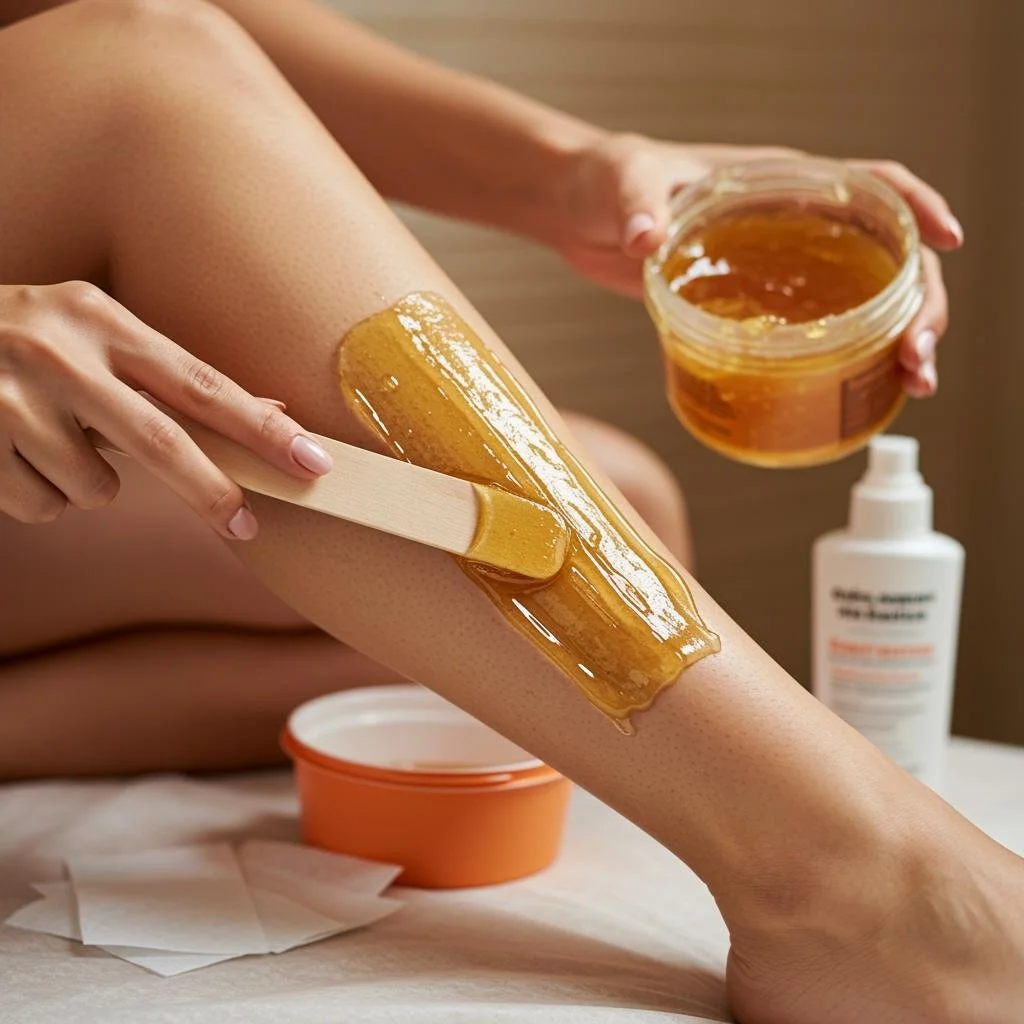There's nothing quite like a truly restful night of sleep, right? Feeling refreshed and energized does wonders for your mind and body. However, many people struggle to attain quality sleep and suffer as a result.
From medical sleep disorders to lifestyle habits to environmental disturbances, all sorts of issues can mess with your sleep. While popping sleeping pills is a quick fix, you can also find natural, safer remedies to help improve your sleep.
In this article, let's explore an assortment of natural options, from supplements to winding down routines to bedroom tweaks. We'll also chat about when natural doesn't cut it and you should seek medical advice.
This article aims to provide you with strategies to achieve uninterrupted sleep, which is essential for your mind and body. Ready to start snoozing soundly and waking up refreshed? Let's get started.
No. 1
Introduction
Quality sleep allows the body and mind to recharge, impacting virtually every system in the body. Getting less than the recommended 7-9 hours per night regularly can negatively affect overall health. Sleep deprivation raises the risk of medical conditions like obesity, heart disease, high blood pressure, and diabetes. It also influences mood, concentration, productivity, and safety.
An estimated 50-70 million US adults have an unhealthy sleep disorder, highlighting the need for safe and effective remedies. Natural sleep aids like supplements, teas, and essential oils are popular options to help induce sleep. While these alternatives show promise, lifestyle adjustments, traditional approaches, and professional support may also be beneficial.
No. 2
The Science of Sleep
Sleep occurs in cycles throughout the night, typically in sleep stages. The first stage is light sleep, followed by deeper sleep in stages two and three. The final stage is rapid eye movement (REM) sleep when dreaming is most common. Disruptions during any stage can lead to poor sleep quality.
The body follows an internal 24-hour cycle known as the circadian rhythm that regulates periods of sleepiness and wakefulness. Exposure to light, particularly blue light from screens, suppresses melatonin production which signals bedtime. Stress, medical conditions, medications, genetics, and age can also impact the sleep cycle. Understanding the science highlights the importance of lifestyle adjustments for achieving quality sleep.
No. 3
Natural Remedies for Better Sleep
While natural sleep remedies such as melatonin, valerian root, magnesium, chamomile tea, and exercise can help improve sleep quality, it's important to be aware of the potential risks of medications like prescription sleeping pills for sleep disorders and use caution. Understanding which sleeping pill is dangerous provides valuable information on the risks of sleep aids to support sleep hygiene and make informed decisions when considering both natural sleep remedies and pharmaceutical options for quality sleep and mental health.
Evaluating the benefits and risks of various sleep aids enables the creation of an integrative sleep health plan that safely incorporates natural remedies and lifestyle changes for optimal sleep. They often contain compounds that interact with receptors in the body that influence sleep and mood.
Here are some of the most common natural sleep aids:
Melatonin - This hormone regulates sleep-wake cycles. Melatonin supplements can re-adjust the body’s internal clock and are used to treat insomnia and jet lag.
Valerian Root - This herb interacts with gamma-aminobutyric acid (GABA) receptors which induce relaxation. Valerian reduces the time it takes to fall asleep and improves sleep quality.
Magnesium - Magnesium supports neurotransmitter production which influences sleep cycles. Supplements are effective for insomnia, especially in cases of magnesium deficiency.
Chamomile Tea - The antioxidants in chamomile tea promote relaxation and relieve anxiety. Drinking chamomile tea before bed is a proven way to improve sleep.
Exercise - Regular exercise helps deepen sleep and shorten the time it takes to fall asleep. However, vigorous activity too close to bedtime can be disruptive.
Healthy Sleep Habits - Maintaining a consistent sleep schedule, limiting screen use at night, and creating a relaxing pre-bed routine greatly enhance sleep hygiene.
No. 4
The Impact of Diet on Sleep
Diet directly affects sleep cycles, energy levels, mood, and more. It is best to avoid large meals, excessive liquids, caffeinated beverages, alcohol, and spices close to bedtime.
Here are the common effects of improper diet on sleep:
Digestive Issues - Large meals before bed can trigger digestive issues and acid reflux which disrupt sleep. Allow 2-3 hours for digestion before lying down.
Excessive Urination - Excessive fluids increase the need for nighttime bathroom trips which fragment sleep cycles. Limit fluid intake 2 hours before bed.
Over-stimulation - Caffeinated drinks such as coffee, tea, soda, and energy drinks stimulate the nervous system and can impair sleep quality. Avoid caffeine after 2 pm or a minimum of 6 hours before bed.
Gastrointestinal Upset - Spicy foods can trigger heartburn, stomach pain, and discomfort when lying down. Avoid spicy meals at dinner and especially late at night.
On the other hand, foods and drinks containing compounds that increase serotonin and GABA can improve sleep. For example, tart cherry juice contains melatonin, chamomile tea has apigenin, and kiwi offers serotonin.
Warm milk, particularly when paired with spices like nutmeg, cinnamon, and turmeric also encourages relaxation and sleepiness. Consuming these foods and drinks 1-2 hours before bed as a light snack may help improve sleep quality.
No. 5
Risks and Considerations
While natural sleep remedies are generally considered safe for short-term use, side effects are possible. Melatonin can potentially lead to headaches, dizziness, nausea, and irritability. Valerian root may cause headaches, upset stomach, mental dullness, and heart palpitations. It is important to discuss using sleep supplements, especially long-term, with your healthcare provider.
It is important not to use natural sleep aids in children or pregnant women without medical approval. Operating heavy machinery or driving should be avoided when first using new sleep aids until any side effects are known. Never exceed the recommended dosage of supplements. Seek immediate medical attention if you experience an adverse reaction.
No. 6
The Role of Lifestyle in Sleep Quality
Sleep hygiene refers to habits that help promote consistent, uninterrupted quality sleep.
Lifestyle factors that can negatively impact sleep include:
Stress - High stress levels activate the nervous system making it difficult to fall and stay asleep.
Hormonal Imbalance - Hormonal imbalances in both men and women affect sleep patterns.
Irregular Schedules - Varying sleep and wake times confuse the body's circadian rhythm.
Screen Time - Exposure to blue light from TVs, phones, and computers suppresses melatonin production and stimulates the brain.
Poor Sleep Environment - External factors like light, noise, and uncomfortable temperatures disrupt quality sleep.
Making thoughtful lifestyle adjustments can have profound benefits for sleep health. For example, going to bed and waking at consistent times reinforces the natural circadian rhythm. Exercising regularly also deepens sleep. Limiting food and beverages that disrupt sleep patterns is key. Reducing screen time and creating an ideal sleep setting improves sleep quality.
No. 7
Traditional Approaches to Better Sleep
In addition to lifestyle adjustments and natural supplements, incorporating traditional remedies from ancient medicinal practices may also improve sleep.
Common natural sleep techniques include:
Ayurveda - Recommends a natural sleep aid called nasya which involves applying herbal oils and performing light massage on the nose and forehead before bed.
Traditional Chinese Medicine - Advising consuming foods considered warming yang like ginger, cinnamon, and dates to balance the body’s yin and yang energies.
Acupressure and Acupuncture Therapies - Balance energy flow in the body to promote deep, restful sleep.
Aromatherapy - Essential oils like lavender and bergamot are traditionally used to create a calming state before sleep.
Herbal Teas - Teas made with herbs like chamomile, lemon balm, and passionflower are used in many cultures for their sedating properties.
While research is still emerging on some traditional remedies, they offer additional avenues to improving sleep naturally. Consulting trained practitioners help ensure these approaches are used safely and appropriately.
No. 8
The Impact of Environment on Sleep
Surprisingly, the bedroom environment significantly influences sleep quality.
Key factors include:
Noise - Exposure to sounds over 30 decibels disturbs sleep. Using a fan, white noise machine, or earplugs can help block disruptive noise.
Light - Darkness encourages melatonin production for quality sleep. Blackout curtains or sleep masks are recommended.
Temperature and Humidity - The optimal temperature for sleep is around 65°F with a humidity level between 30-60% to prevent congestion.
Comfort - Uncomfortable mattresses and bedding disrupt sleep. Trade thick blankets for lighter sheets to maintain a comfortable body temperature.
Making simple adjustments to the bedroom setting like utilizing blackout curtains, keeping temperatures cooler, removing unnecessary light sources, and using comfortable bedding goes a long way in supporting quality sleep.
No. 9
The Connection Between Sleep and Mental Health
Sleep has a bidirectional relationship with mental health. Poor sleep quality can increase the risk of developing psychiatric disorders, and psychiatric conditions can lead to sleep issues.
Here are some key links:
Insomnia and Depression - Insomnia and depression frequently co-occur and exacerbate each other. Insomnia is a symptom of depression which can worsen the condition. Depression disrupts sleep cycles leading to insomnia. Breaking this cycle is key.
Emotional Health - Sleep disturbances lead to mood disturbances due to reduced serotonin and melatonin which regulate mood and circadian rhythms. Inadequate sleep inhibits emotional regulation and increases reactivity.
Anxiety Disorders - Inadequate sleep is linked to poor stress regulation which can trigger and worsen anxiety disorders. Hyperarousal caused by lack of sleep mimics the activated nervous system in anxiety.
PTSD - Conditions like PTSD feature increased nightmares and disrupted REM sleep patterns. Nightmares linked to memories and flashbacks impair sleep quality in PTSD.
OCD - Hyper-aroused states prevent the relaxation required for sleep onset in disorders like OCD. The need to perform rituals disrupts natural bedtime routines needed for sleep.
ADHD - ADHD symptoms can also lead to delayed sleep phase syndrome, where patients are unable to fall asleep until very late. Disrupted circadian rhythms lead to inattentiveness and hyperactivity.
Ensuring healthy sleep is a critical part of any mental health treatment plan. If you suffer from both poor sleep and psychiatric issues, consult your mental health provider for sleep-specific recommendations.
No. 10
When to Seek Professional Help
Occasional sleep troubles are normal. However, consistently poor sleep that impacts daily functioning warrants medical attention.
Seeking professional help is advised if you are experiencing:
Insomnia - Have difficulty sleeping more than 3 nights per week for over a month
Fatigue - Experience excessive daytime fatigue
Disruptions - Notice loud snoring or breathing interruptions during sleep
Disturbances - Have intense nightmares, behavior changes, or hallucinations
Depression and Anxiety - Feel depressed or anxious around bedtime
Your healthcare provider can check for underlying health issues, adjust medications as needed, and refer you to a sleep specialist for further evaluation and tailored treatment.
Takeaways
Getting good, restorative sleep is so important for feeling your best mentally and physically. The good news is certain natural supplements, essential oils, soothing teas, and traditional remedies can help relax your mind, ease anxiety, and improve troubled sleep.
Options like magnesium, chamomile tea, lavender oil, or acupuncture have shown promise for many people struggling to fall or stay asleep. They can be excellent ways to support quality sleep. But if you continue having ongoing sleep troubles, be sure to check in with your healthcare provider. Persistent issues may require medical expertise.
At the end of the day, making sleep a priority allows your mind and body crucial time to recharge and restore. When you're well-rested, everything feels better for your mood, focus, energy levels, and even your overall health. So invest in rest; your whole self will thank you for it.
FAQ
How does light exposure impact sleep?
Light exposure, especially from screens like cell phones and computers, suppresses melatonin production which signals the body’s sleep and wake cycles. Limiting light exposure in the evenings helps maintain healthy sleep patterns.
Should I take melatonin supplements long-term?
Melatonin is considered safe for short-term use. However, it is best to consult your healthcare provider before taking melatonin supplements regularly long-term as potential side effects are not well studied.
What temperature should the bedroom be for optimal sleep?
The ideal bedroom temperature for quality sleep is around 65°F. Lower temperatures support the decrease in core body temperature needed to initiate sleep. Use comfortable breathable bedding to stay cool.
How many hours of sleep does the average adult need?
Most adults require 7-9 hours of sleep per night for optimal health, well-being, and performance. However, individual needs can vary across lifespan stages and health status. If you wake up feeling unrefreshed, aim to increase your nightly sleep time.
What is sleep hygiene and why is it important?
Sleep hygiene refers to behaviors, habits, and practices that promote consistent, high-quality sleep. It involves following a consistent sleep schedule, limiting stimulating activities before bedtime, creating an optimal sleep environment, avoiding large meals, caffeine, and alcohol close to bedtime, and establishing relaxing pre-bedtime routines. Following good sleep hygiene is important because it sets the stage for more restorative sleep, leading to improved health, better cognitive functioning, mood regulation, and overall well-being.
What are the potential side effects of using valerian root for sleep?
Valerian root is an herbal supplement used to treat insomnia and improve sleep quality. Potential side effects include headache, dizziness, upset stomach, and grogginess the morning after use. Valerian can interact with other medications like antidepressants and sedative medicines. It should be used with caution in older adults and avoided entirely by pregnant or nursing women due to a lack of safety research. Mild side effects are common but valerian is considered relatively safe for short-term use.
How does magnesium contribute to better sleep?
Magnesium plays several roles in promoting sleep. It activates parasympathetic nerves which calm the body and mind, making it easier to fall and stay asleep. It also binds to GABA receptors which slows down activity between nerve cells, inducing relaxation and sedation. Magnesium deficiency can cause restlessness, insomnia, and nighttime muscle cramping. Supplementing with magnesium can help improve sleep onset, sleep time, and sleep quality.
Why is chamomile tea considered a sleep aid?
Chamomile contains antioxidant and anti-inflammatory compounds that provide a mild sedative effect. It increases glycine, an amino acid that relaxes nerves and muscles. This reduces anxiety and mental chatter that can interfere with sleep. The soothing, lightly sweet flavor also cues the body to unwind. However, chamomile can interact with blood thinners and some other medications, so use cautiously.
How does regular exercise improve sleep quality?
Regular exercise helps regulate the body's sleep-wake cycle. It raises core body temperature during the day, which facilitates a drop in temperature at night needed to initiate sleep. Exercise also reduces stress and anxiety while increasing relaxation hormones like serotonin. However, working out too close to bedtime can be overstimulating. Getting exercise earlier in the day, especially morning light exposure, is ideal for sleep.
What are some dietary habits that can affect sleep?
Diets high in sugar, fat, or carbs can negatively impact sleep. Heavy late-night meals can cause indigestion. Spicy foods may cause heartburn. Caffeine, alcohol, and sugary drinks act as stimulants that interfere with sleep. Eating lighter, earlier dinners and limiting liquids before bedtime can prevent nocturnal awakenings. Low-carb diets also help regulate serotonin and melatonin production.
What are the risks associated with using natural sleep aids?
While natural sleep remedies are seen as gentler alternatives to medications, they still carry risks. Herbal supplements can interact with other drugs or exacerbate medical conditions. Products lack regulation so potency and quality may vary. Overuse can lead to dependence. Almost all sleep aids, synthetic or natural, lose effectiveness over time while side effects remain. Dependency on any sleep aid inhibits the development of healthy sleep habits.
How do lifestyle factors like stress and work schedules affect sleep?
Stress increases cortisol production which interferes with natural melatonin release. Work schedules like overnight shifts disrupt the body's circadian rhythms making sleep difficult. Traveling across time zones creates jet lag that misaligns sleep-wake cycles. Prioritizing stress management, maintaining consistent sleep schedules, allowing time to adjust to new time zones, and using light therapy can mitigate these effects.
Can you share some traditional remedies from different cultures for better sleep?
Traditional sleep remedies vary across cultures but often involve herbal teas like chamomile, valerian, passionflower, lavender, or magnolia. Tart cherry juice contains melatonin. Ayurveda relies on meditation, yoga, and medicinal herbs. Traditional Chinese Medicine focuses on stress-relieving practices like acupressure, tai chi, and goji berry tea. Many cultures burn sage or cedar to promote relaxation before bed. Essential oils like lavender and frankincense are also commonly used.

















































